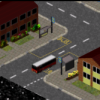Proceed trying getting result, dont learn stuff what you can look up.
What you do with it you can fill in yourself, no one learning you, else you could look it up.
Ask someone who knows if you have problems so you can proceed with having results, forum dont always react, or getting weird discussions like learn first before you ask.
Thats how i think, dont wanto start arguements or fights, keep it nice please.





